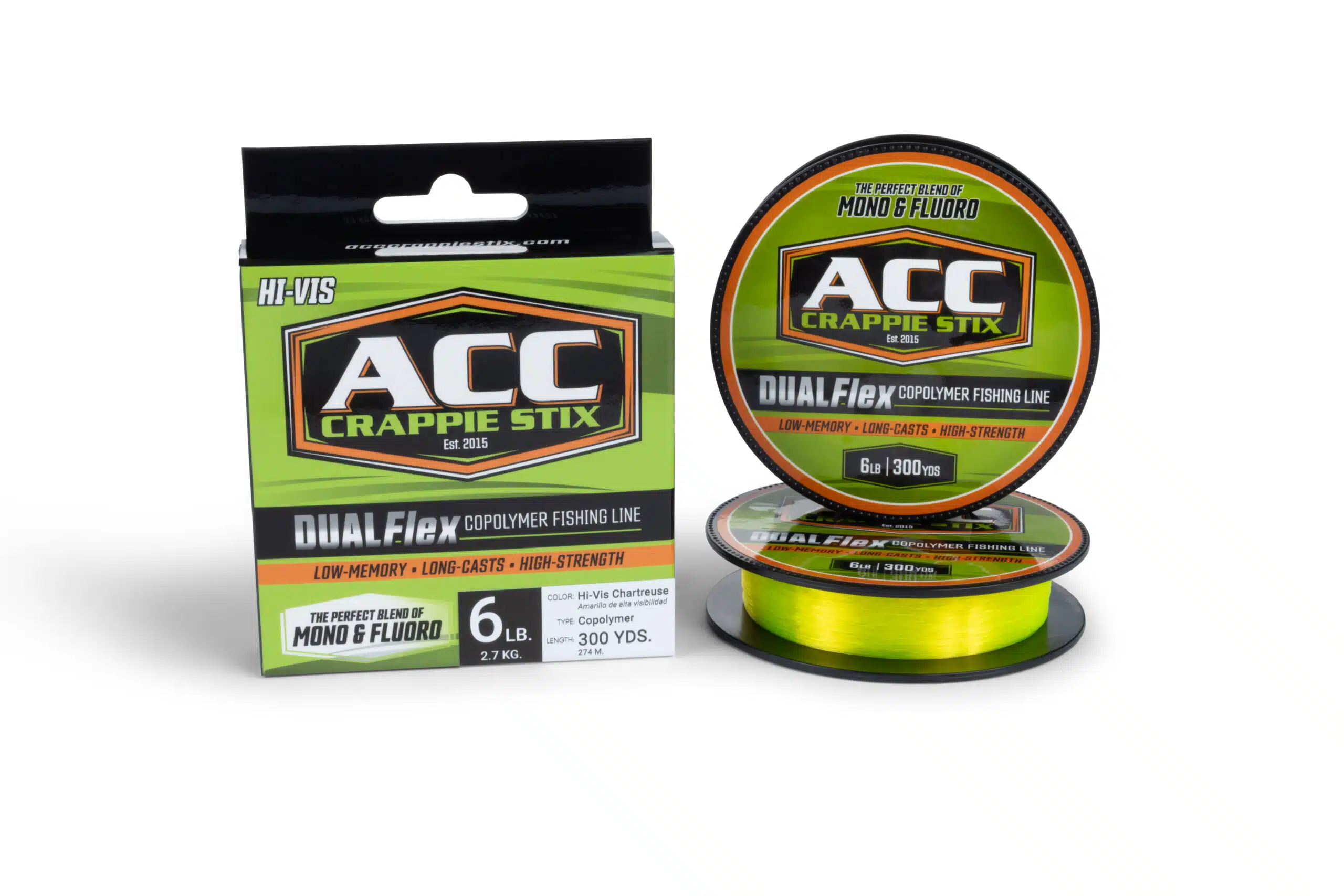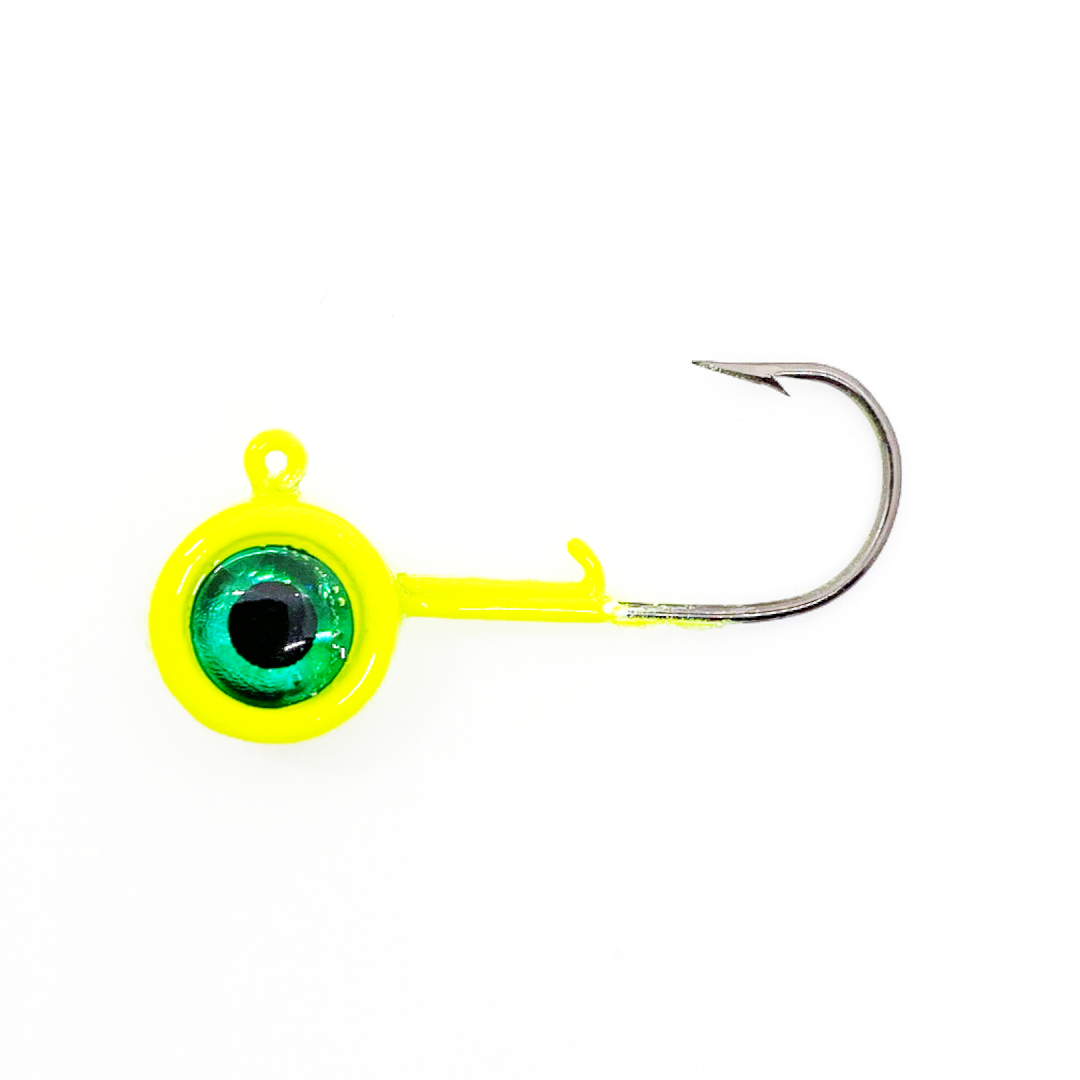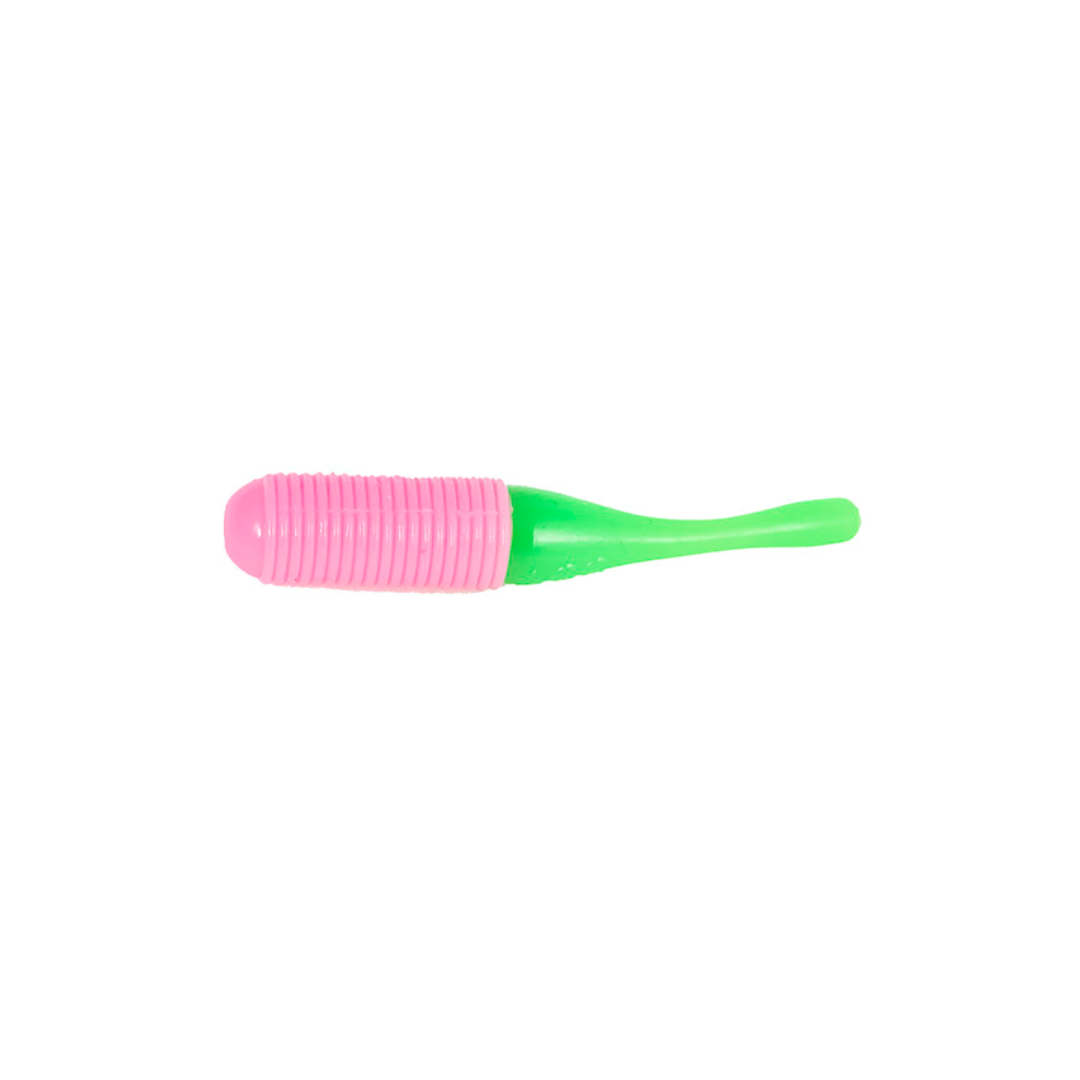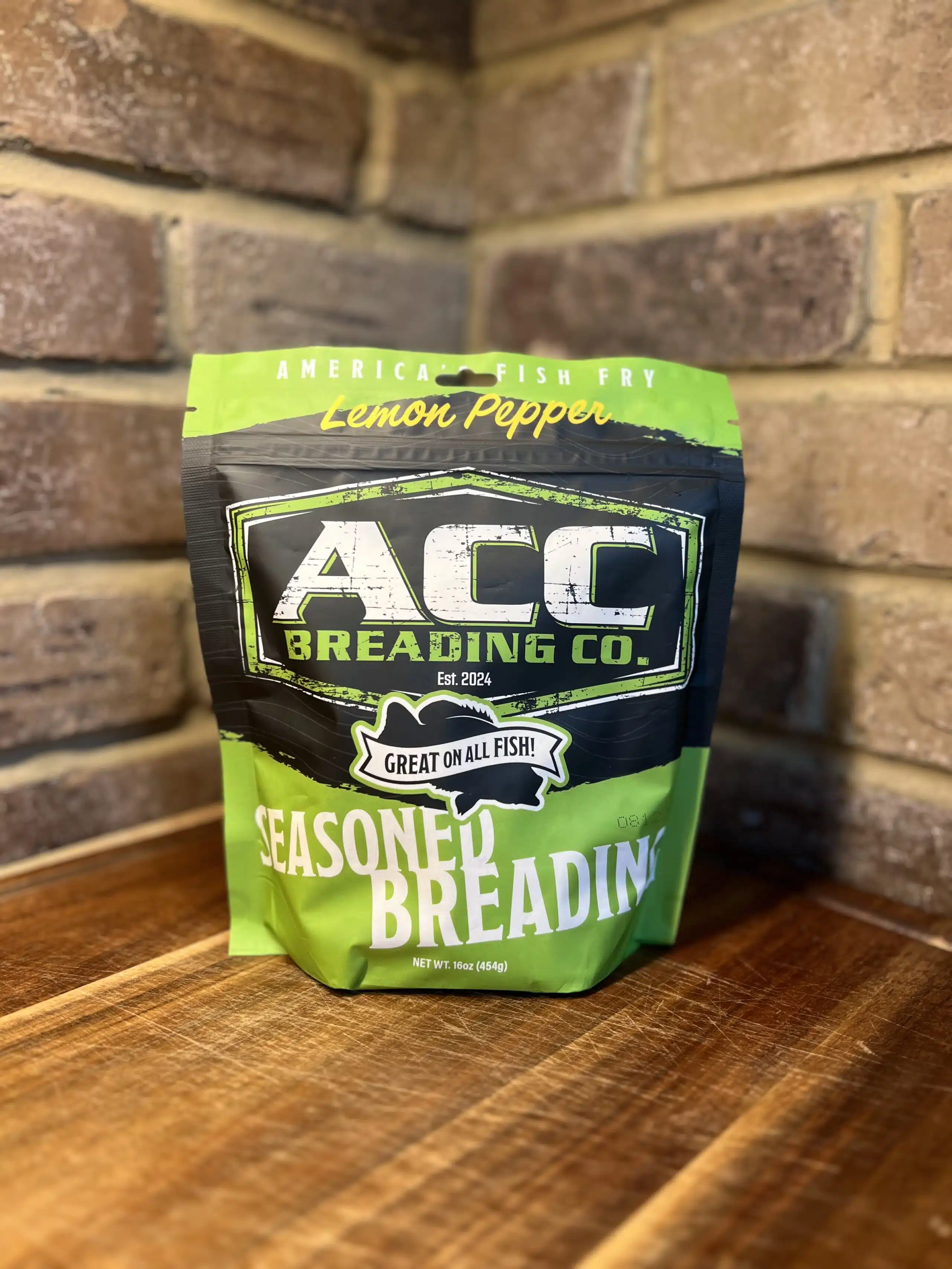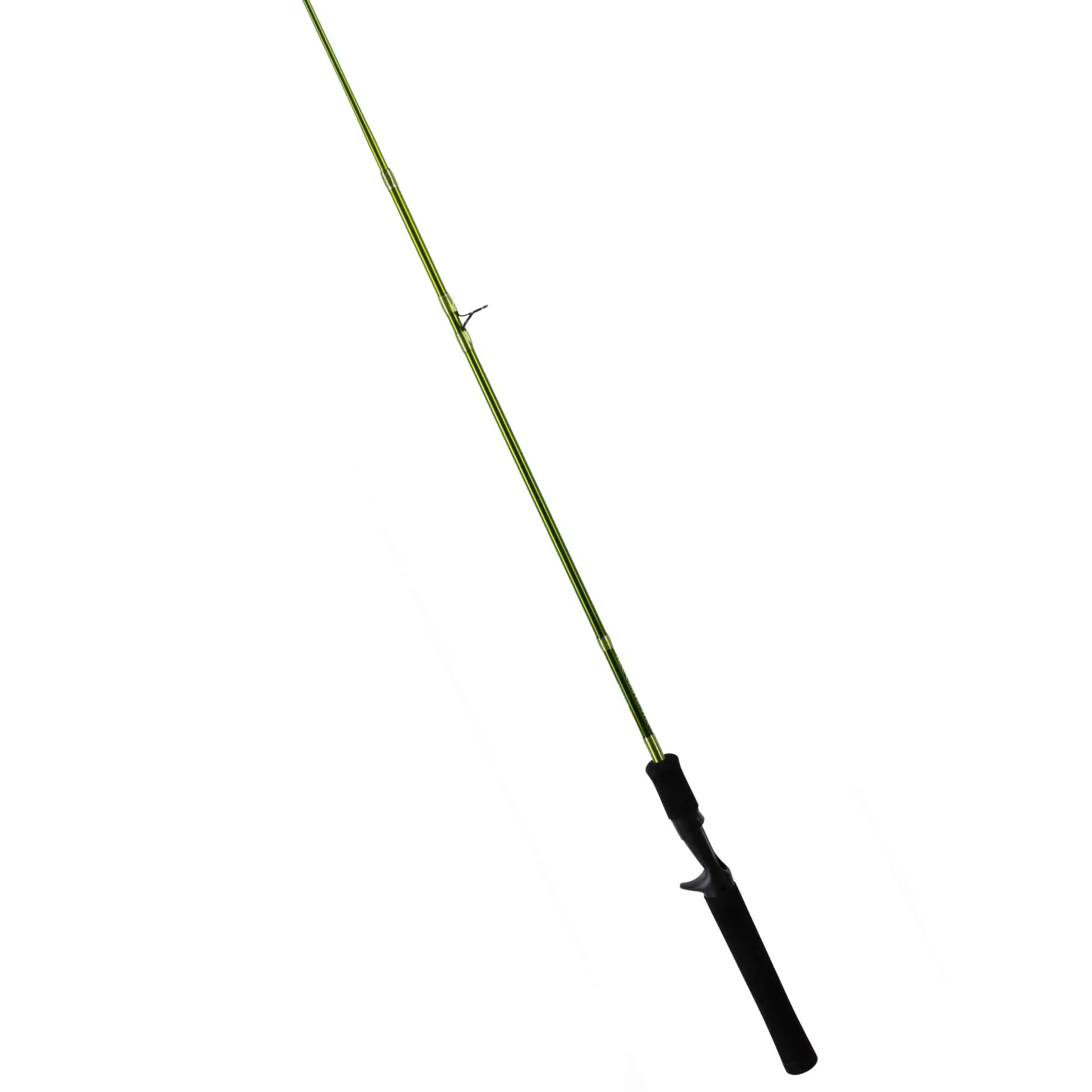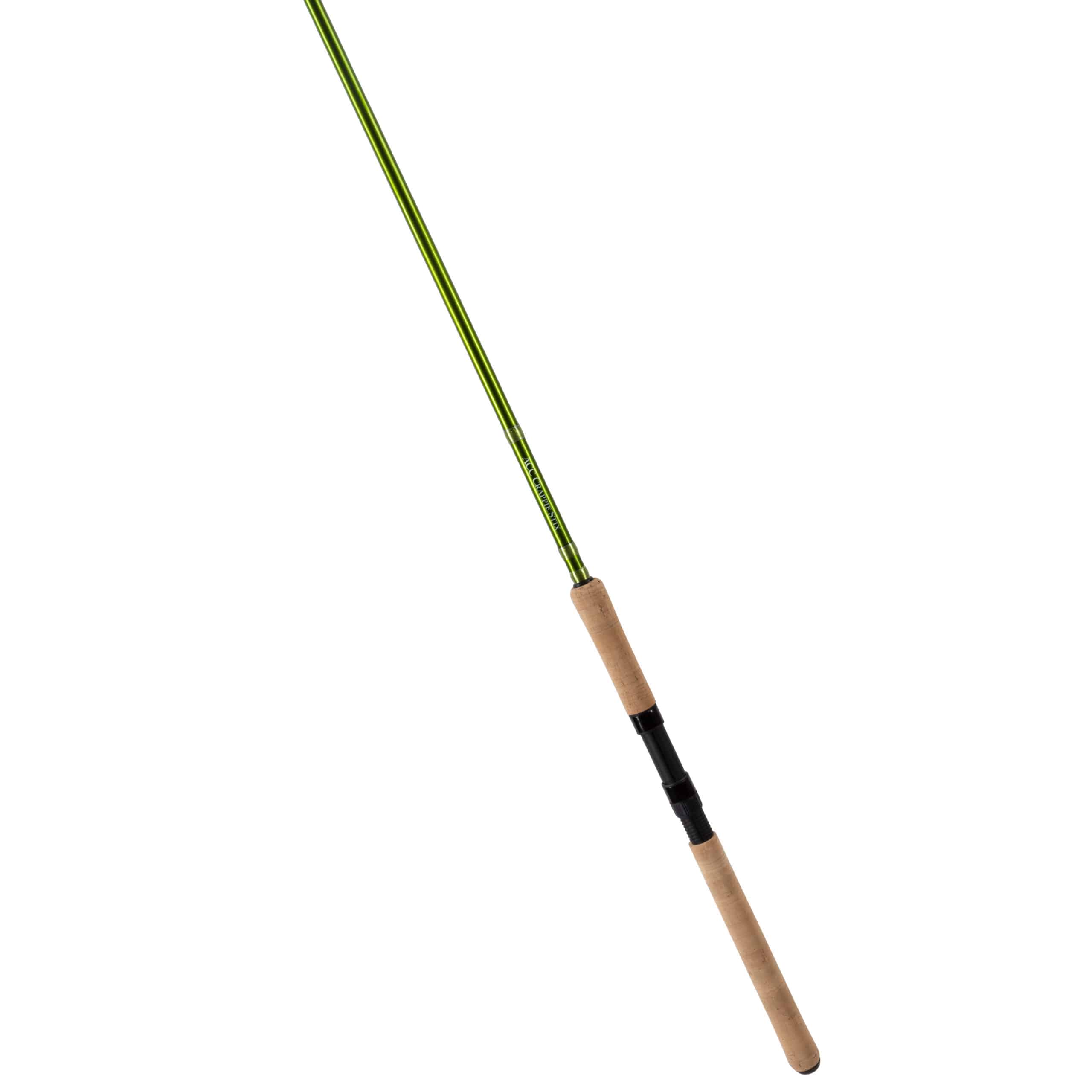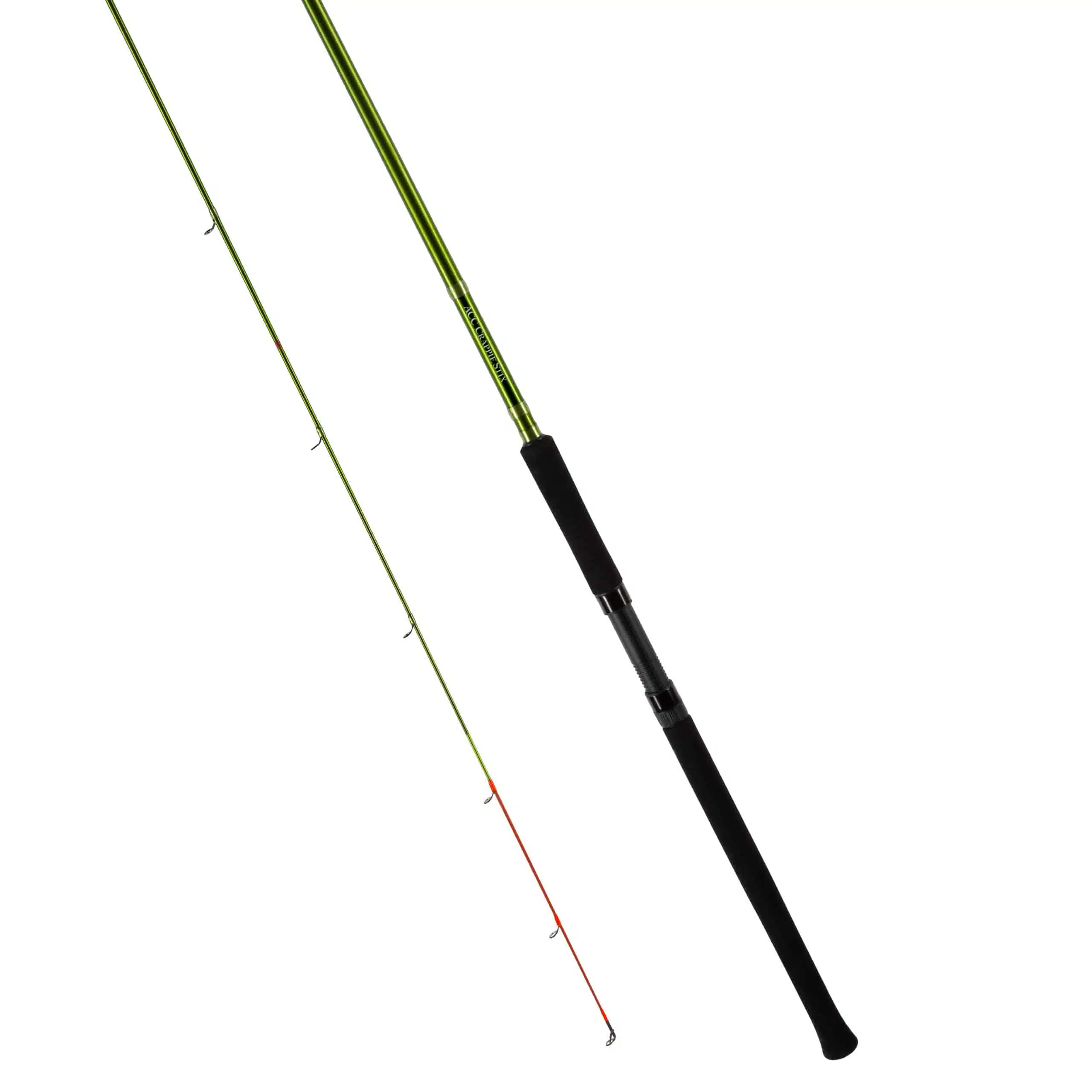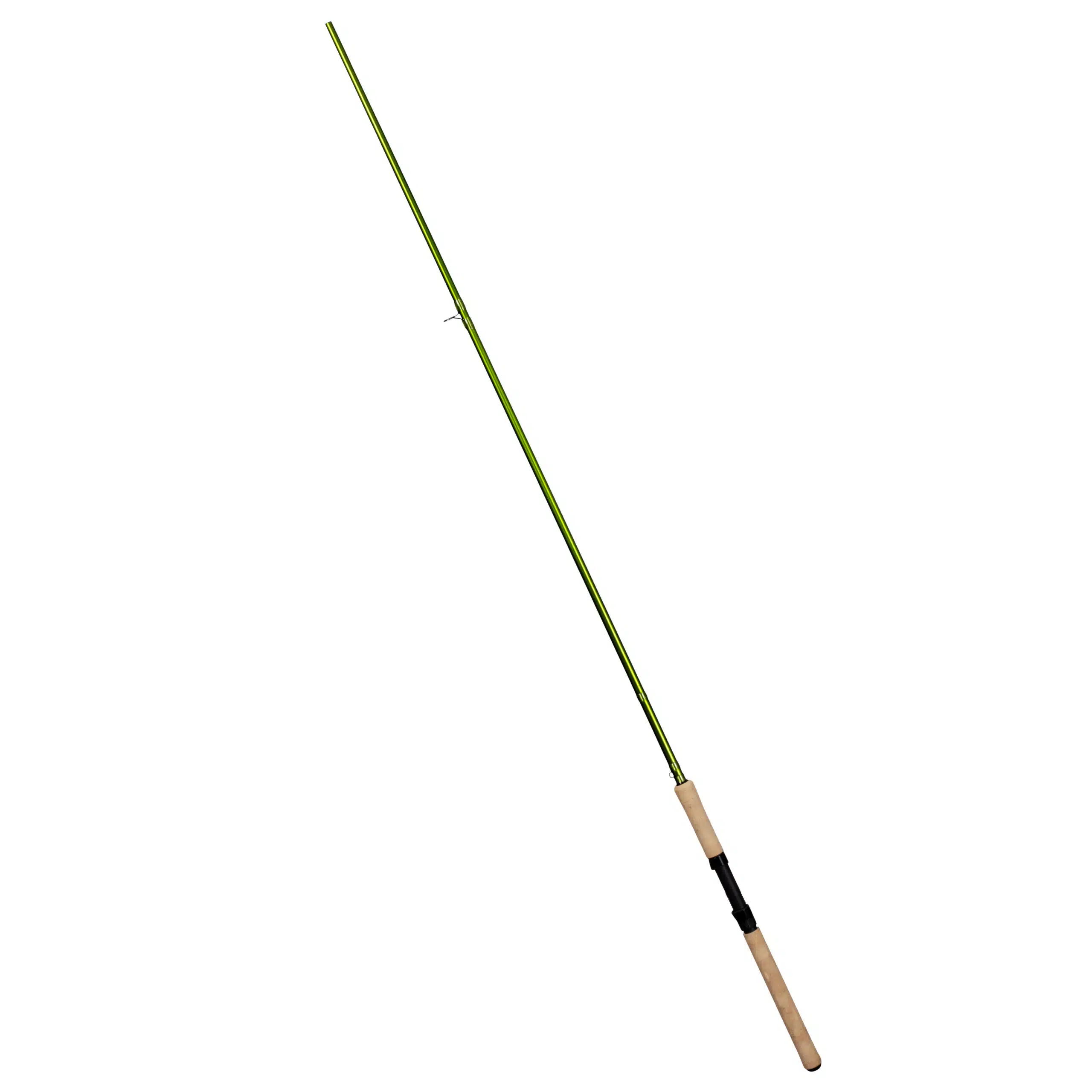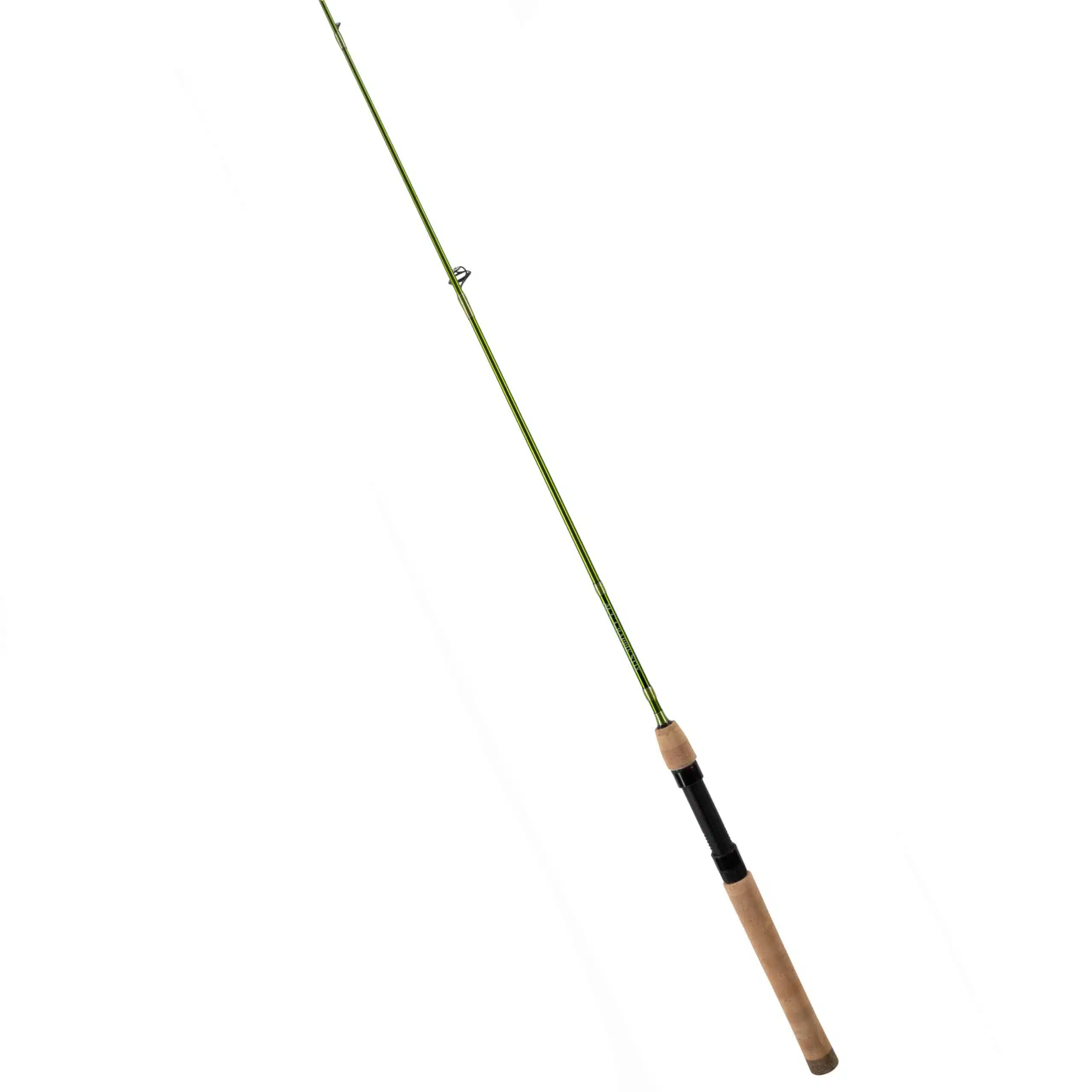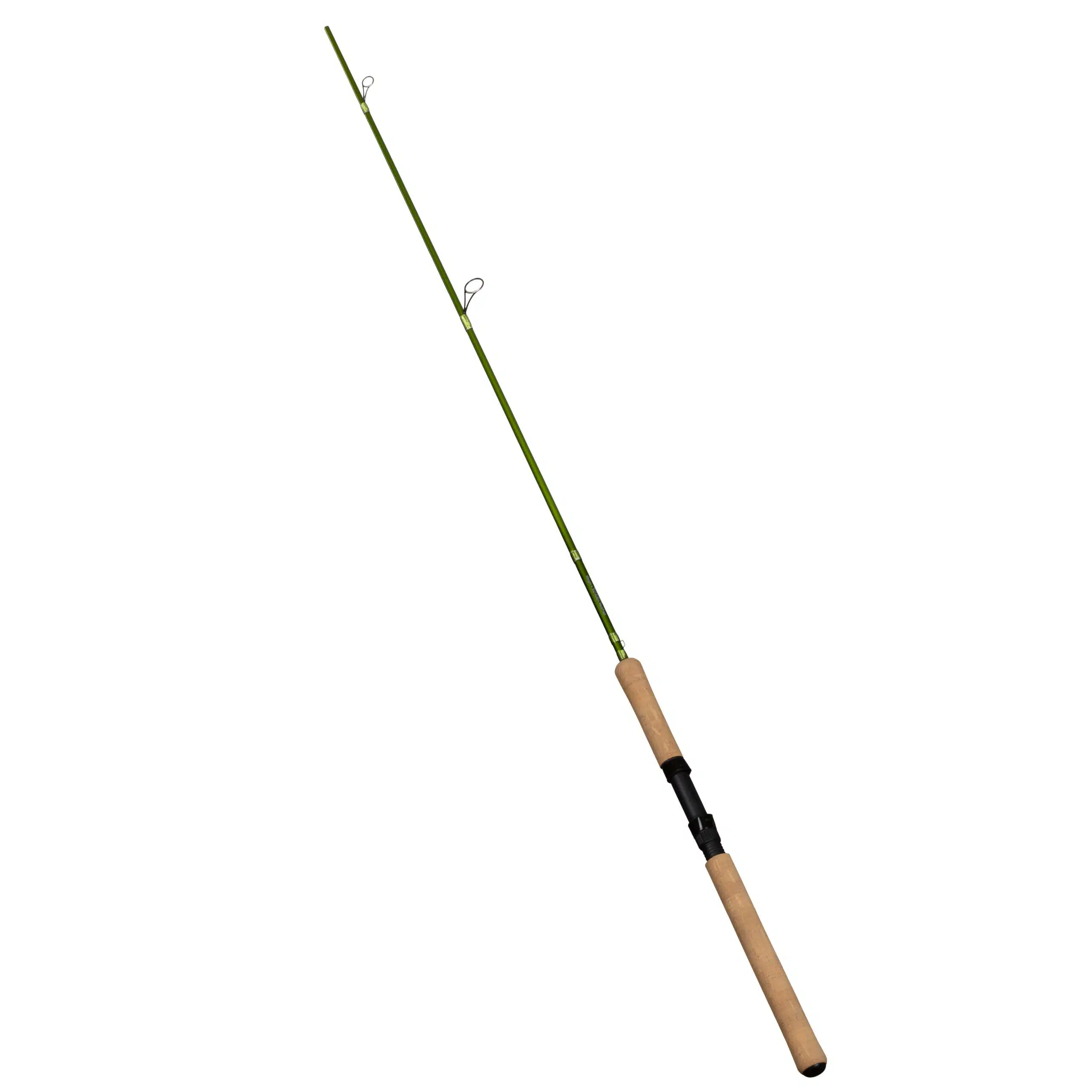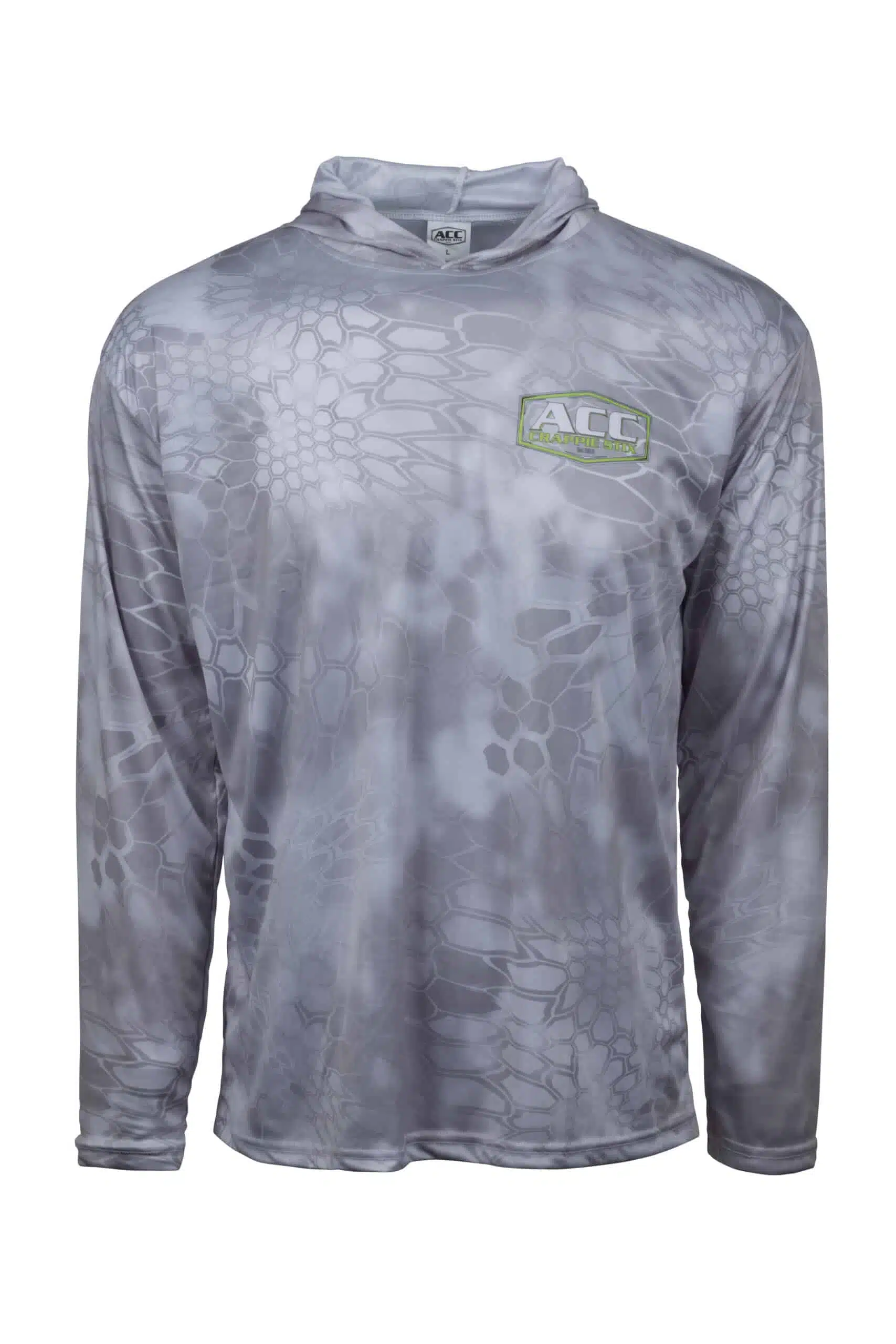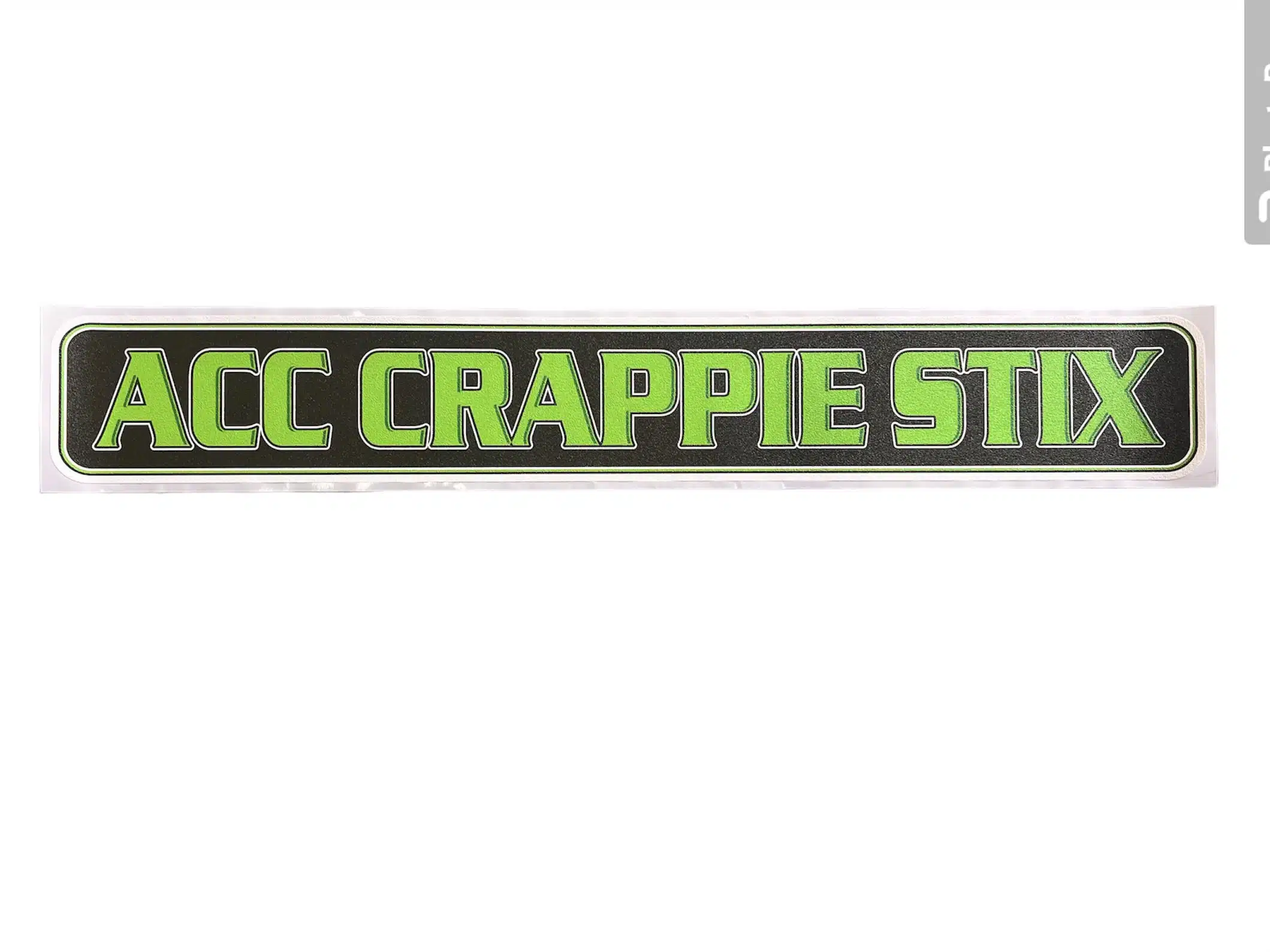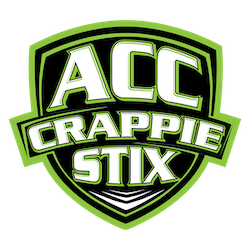What It Takes To Become a Successful Pro Crappie Angler
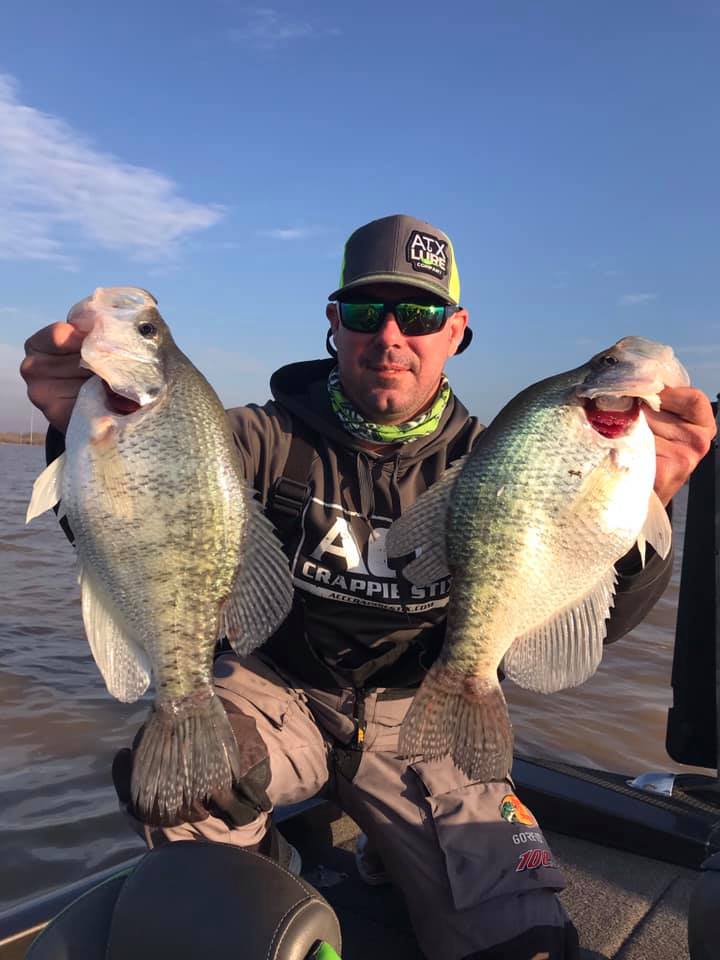
By Greg McCain
Here at ACC Crappie Stix, we’re intrigued by the mindset of the consistently successful crappie tournament fishermen. In fact, we’ve discussed the concept on more than one occasion as we planned stories for this blog. What are the things, the qualities, and the attributes that distinguish the ultra-successful tournament competitor from the average good crappie fisherman?
Andy Lehman, ACC Crappie Stix owner, said he has rolled the concept around in his mind for years, even since the days he watched bass fishermen consistently place high in the standings. The idea has stuck with him as he’s witnessed the same demonstration of skill in crappie tournaments.
“I’ve always been fascinated by guys who get a top 5 or win a tournament with 80 or 90 boats,” Andy said. “I grew up watching the Bassmasters, and the same guys were always coming up in the top 10. I thought, ‘It’s got to be something more than luck, something that allows them to put the puzzle together.’ “
With that idea in mind, we quizzed the ACC pro staff about the matter and particularly focused on the ideas of three consistently successful tournament fishermen, Craig “The Crappie Cowboy” Nichols, Shane Johnson, and Jonathan Phillips.
To a man, each mentioned the importance of the mental game in their approach to tournament fishing, yet each individual also offered some unique ideas that have led to their success. We took their comments and divided them into two categories: practicing, planning, and pre-fishing and In-tournament situations.
Establishing a few parameters helped in the comparison/contrast of the two camps, and Jonathan, the Alabama pro, came up with a definition of what makes a good crappie fisherman in general.
“Usually what I think of when you say a good crappie fisherman is someone who is good on their home lake,” he said. “You can be really good at home. You get used to the patterns. You know how the fish react to weather and seasonal changes.
“You’re kind of oblivious to the styles and patterns that you encounter away from home when you’re fishing different lakes (in tournaments) whether it’s 10 miles away or 500 miles away. Sometimes they are polar opposites.”
Shane, who fishes most of the well-known Mississippi lakes and recently won an event held by the competitive Magnolia Crappie Club on Lake Washington, added another dimension to the debate.
“Some good fishermen may not have the desire to compete,” Shane said. “If they don’t have a desire to win, then they are probably not going to be successful on a regular basis in tournaments. You have to be competitive.”
Practicing, planning, and pre-fishing
For Craig, high finishes in tournaments have been common over the last few years. Along with Robert Carlile, he won the Crappie Masters National Championship on Grenada in 2019 and finished third in an American Crappie Trail event there last year. He also won another event early in 2020.
Craig’s path to success starts long before paying the entry fee. With that in mind, he offers advice about his approach to practicing. He maintains and hopefully sharpens skills prior to tournaments.
“I rode bulls for 32 years,” he said. “I know what it takes to be successful in a competitive sport. It’s time in the game, time spent practicing. And perfect practice makes perfect performance. You can’t just go out there and (halfway try).
“Don’t get me wrong. I take my grandson out there and we just go out and have a good time. If I’m by myself, I’m practicing like I’m in a tournament.
“If I see that fish on LiveScope, I’m trying to get that drop perfect every time. I’m trying to do that on every single drop. These people out here (on tournament circuits) are doing it every day. If you’re not doing it, then you’re not going to compete if you fish against these guys.”
Right along with practicing regularly, planning for an event may span weeks or even several months. ACC pro staffer and Texas guide Les Milligan mentioned the months of preparation that went into his first foray on the national stage. Les eventually finished third in the ACT tournament on Lake Ouachita, LA, and credited much of his success to the advance planning he put in before the event.
His success continued this year in an ACT tournament on Lake Guntersville, AL. Without ever seeing the lake, Les arrived fully ready to tackle Guntersville. He finished fifth overall.
Craig also said efficient planning was a key for him as well.
“Yes, learning how to study maps and learning how to break these lakes down and eliminating 75 percent of the water before you ever get to it,” the Oklahoma pro said. “Beyond that, you have to know the fish, their habits and tendencies, the time of year, the water temperature. Where should these fish be on this particular body of water?
“And then you have to start breaking down weather patterns. Is it down? Is it at normal pool? Are we having warm rain? All of these minute little details contribute to how these fish are located and how they are going to react.”
The time finally arrives to put all the practicing and advance planning to work. Pre-fishing in the days just prior to a tournament remains a critical factor in tournament success. Most successful competitors have established routines, some of which may contrast with the practices of an average good fisherman.
“It’s really hard to do,” Jonathan said. “I have good friends who want to get in the boat with me and pre-fish. The biggest difference is when we really start catching fish, it’s time to leave. Most people want to stay, have fun, and catch fish. When I go fun fishing, I don’t want to leave fish either.
“In (pre-fishing for) a tournament, I want to find as many viable places to fish as possible. You also have to know where the biggest fish on the lake are located and how they bite.”
Shane noted how pre-fishing has changed in recent years. Once upon a time, pre-fishing meant boating numerous fish in order to determine number and size in a particular area. Now, LiveScope does most of the pre-fishing work for him.
“You just drive up on them and see how many are there and in particular how big they are,” he said. “You try to pinpoint the areas that hold the biggest fish on the lake, and that’s likely where you’re going to find most of your biggest fish in tournaments.”
Jonathan said pre-tournament success is a good predictor of how a tournament will go for him. He mentioned good pre-fishing days prior to a Crappie Masters event in Florida earlier this year. He finished third. In the recently completed Crappie Masters tournament on Grenada Lake in Mississippi, he said his pre-fishing was good but never fully complete.
“That’s actually the case with the last two tournaments,” he said. “On the St. John’s River (in Florida), I got on fish early and I could go look for new stuff. That takes the pressure off.
“The last couple of tournaments we went through a couple of days where we weren’t where we needed to be, but we were getting there. Another pre-fishing day (on Grenada) and we’re probably jumping 10 spots. Sometimes it takes more time just to know what the fish are doing and how to catch them.”
In-tournament situations, mental focus, adaptability, and organization were some of the components of tournament success, according to the ACC pro-staffers, but another quality, patience, was somewhat surprising in that it was mentioned by more than one person.
Craig notes that he’s not concerned with catching 50 fish or even getting 50 bites on a tournament day.
“You’re looking for seven fish,” he said.
That means potentially long periods between catches.
“Absolutely, patience is important,” Craig continued. “Lots of guys get impatient. On most lakes, there are not a huge number of those giant fish. You have to cover lots and lots of water to find those seven fish that you’re looking for.
“You just have to mentally prepare yourself. You have to know what that signature looks like on the screen and when you find that signature, you have to be patient and diligent about your presentations. The guy that makes the fewest number of mistakes is the guy who’s going to win the tournament.”
Shane said patience was a virtue in his recent win in the Magnolia tournament on Lake Washington. His problem was not catching fish; it was filtering through multiple smaller fish to find the right ones.
“We went through a bunch of fish,” he said, “to get seven good ones.”
Patience proves profitable in the long run for tournament fishermen. Otherwise, other qualities contribute greatly to success as well.
Shane mentioned adaptability is vitally important, knowing when to change or when to stick with the original plan.
“We were pre-fishing Ross Barnett (last year), and I was looking at all of these big boy fish,” he said. “I didn’t try to catch them. I’d just ride by and look at them, and they were there every time.
“As always, the day of the tournament the wind is blowing 15 miles per hour out there with three- to four foot swells, and you couldn’t get on those fish.”
Plan A was out; enter Plan B.
“My partner and I made the decision – something we hadn’t done in over a year – and we started pulling some crankbaits,” Shane said. “We didn’t win, but it got us in the money by doing that.”
That situation called not only for adaptability but also for preparation. With LiveScope, Shane has switched almost exclusively to one-poling, but he knows days occur like that wind-blown one on Ross Barnett.
“You have to be prepared if you can’t get on the (LiveScope) fish,” he said.
In his recent win, Shane had gone to Lake Washington prepared to spider rig if necessary, including bringing minnows along. The weather cooperated, but the minnows seemed to provide a winning edge for him while one-poling.
“I normally don’t use minnows one-poling,” Shane said, “but the fish seemed to want them that day. I think they helped (us win).”
Jonathan said the pivotal element for him in tournament success is organization, which he said is part of his overall time management plan. Organization starts at home prior to an event but also extends to the boat during an event.
“Without a doubt, organization is the key for me,” Jonathan said.
“Keep the boat organized; keep the tackle organized. You don’t have a mess when you have 10 minutes left to get into the weigh-in line. There’s so much more that goes into it than just catching fish.”
Nothing contributes to tournament success more than finding big fish and making them bite, however.
“You know that catching a bunch of 1 ½-lb. fish is not going to do you any good if the lake is full of two-pounders,” Jonathan said. “Make that catching 2 ½-lb. fish on Grenada when everyone is catching three-pounders.”
Jonathan said those bigger fish are always selective and frequently spooky.
“How do you catch those bigger fish?” he asked. “It’s like hunting a big buck. They’ve seen a lot.”
Craig’s comments about catching big fish complement those of Jonathan and also reiterate his earlier ideas about patience.
“You have to hurry but you have to slow yourself down,” he said. “It’s a classic oxymoron. Hurry and find them but be patient and deliberate in trying to catch these big fish. These fish are old. They have seen everything. If you don’t have a perfect presentation, you’re not going to get these fish to bite.”
Andy said he now better understands how the accomplished pros consistently rank near the top. The subtle choices and decisions are what separate the advanced angler from a good one, he said.
“It’s pretty amazing how those subtle changes affect the outcome of events and allow the best pros to gain spots on the leaderboard,” Andy said. “It may be something as insignificant as changing from a 1/16th-oz. jig to another size or changing from braid to fluorocarbon.”
Andy said he picks up some bit of knowledge in just about every conversation with successful competitors from his pro staff.
“I was talking to one who said he couldn’t catch fish unless they were facing away from him,” Andy said. “He actually had to bump the fish, spook them somewhat, and then reach out with our 16-foot rod and place the jig right in front of them. Who would have ever thought about something like that?
“If it’s me, I’m going to tie on a jig and try to make them eat it. If they don’t, I move on. That’s the difference between a pro and someone like me.”
A myriad of factors go into winning consistently in tour-level crappie tournaments. Combining these elements doesn’t guarantee a win or even a check yet goes a long way toward high-level tournament success. They will make everyone a better fisherman, whether an angler fits in the “average good” or the “successful pro” category.
